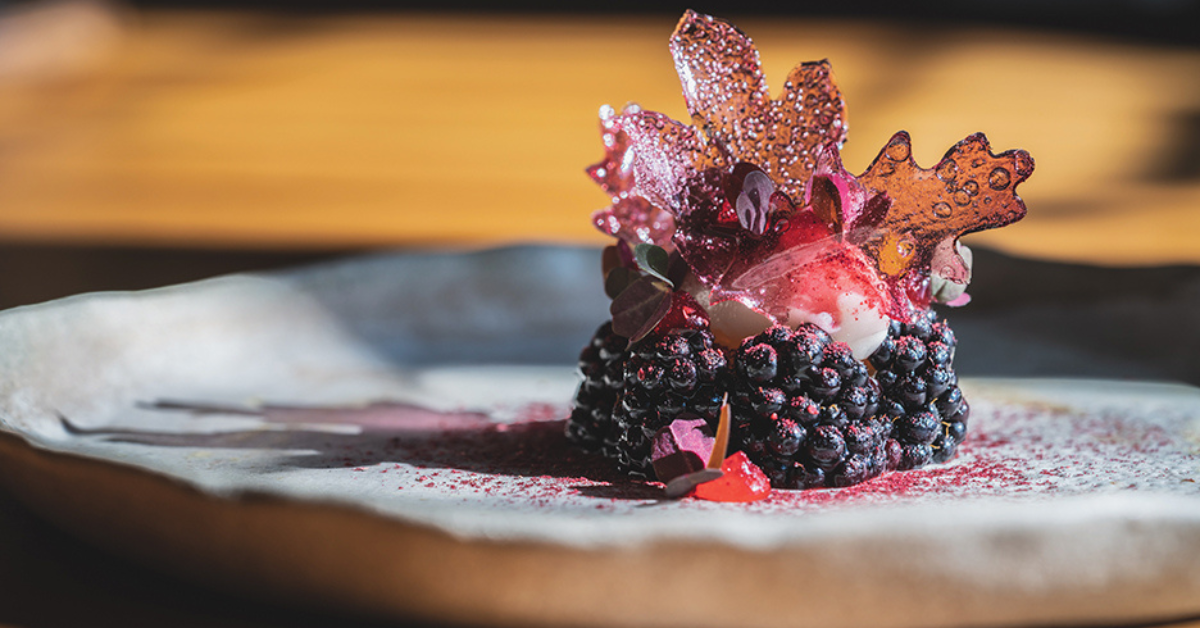Featured image courtesy Camille Vidal.
A movement started across the pond is reshaping the relationship people have with alcohol, and starting new conversations about the topic.
When Laura Willoughby sought to change her relationship with alcohol, she found that there weren’t many options to turn to in the United Kingdom that suited her well. So she created her own. What started out as a Facebook group grew into what is now a movement that swept across the UK and eventually parts of the globe. Club Soda, the mindful drinking community Willoughby co-founded, was just the start of a conversation about how people can drink mindfully.
Camille Vidal, founder of La Maison Wellness, describes what a mindful drinker is best. For her, there are many different types of mindful drinkers, but there is not just one label. “Often, because the movement is expanding and there are more and more people becoming vocal about their sobriety, about cutting alcohol out of their life, very often people assume that if you are a mindful drinker, it means that you’re sober,” Vidal says. “But actually, mindful drinking, and being a mindful drinker, is being mindful, being aware, being conscious of how much, how often and what you drink.
For Willoughby, she identifies as being alcohol-free, and has been for eight and a half years. Club Soda was born from Willoughby’s realization that seeking a change in a relationship with alcohol was met with the disease model of addiction, which may help some people, but not all. “Alcohol is an identity, not a medical condition,” Willoughby says. “I’m alcohol-free because that suits me best and alcohol doesn’t have anything left for me; I definitely took everything that was possible from alcohol.”
Eventually the mindful drinking conversation began to shift to the beverage industry. According to Vidal, today there are about 90 different alcohol-free spirits available around the world, but one company was the catalyst for this category. “Five years ago there was one brand that launched the world’s first alcohol-free spirit — that’s called Seedlip.
Seedlip is a botanical spirit,” Vidal says. “And they really paved the way for rethinking how we drink.” Seedlip’s roots were planted in London in 2015 by the brand’s founder, Ben Branson. Starting with one spirit, the company grew to include three choices, each with an individual flavor profile. One interesting spirit Vidal notes is its Garden 108 spirit that is made with traditional herbs and its signature, peas, giving it a refreshing, gin-like flavor.
Vidal uses Seedlip and other brands — another one she recommends is a company called Lyres that is based in Australia — to create her mindful cocktails that she features on her company’s website. When the pandemic lockdown began in London, where she currently resides, she started “happy hours” on her social media where she showed people how to make her cocktails. Vidal also collaborates with companies and people, such as Willoughby, to spread the awareness of drinking mindfully.
Another category of alcohol-free spirits that has taken to the market are alternatives that are inspired to bring a new way of drinking and a new overall experience, explains Vidal. Three Spirit, another brand Vidal enjoys, specializes in spirits — they call elixirs — that are powered by plants. The elixirs not only taste good, but make the drinker feel good. “They’ve all been built to recreate the experience you have when you drink alcohol and the very reason why people drink alcohol,” explains Vidal. “For example, they have one that is called the Night Cap that helps you to relax, to ease stress, to calm you down, to help you with sleep — because it contains valerian, which helps with sleeping.”
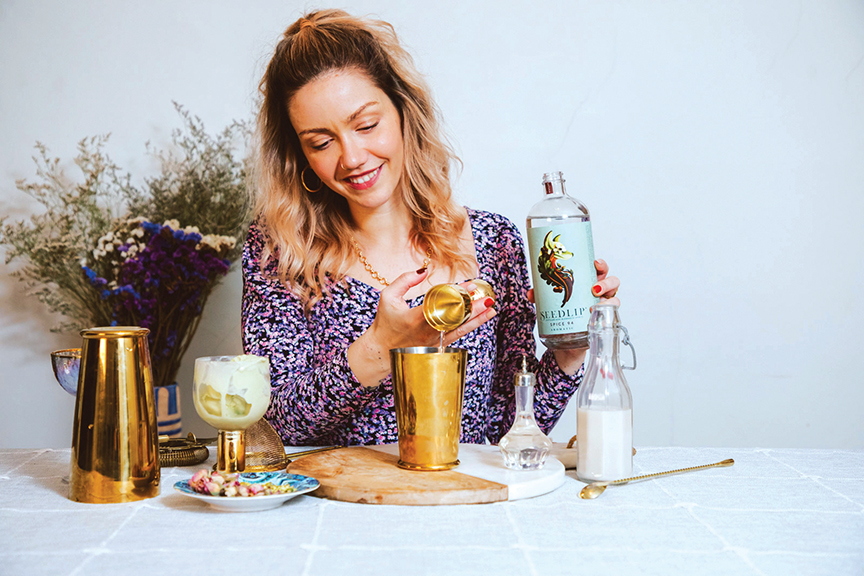
Above: Camille Vidal; Below: Laura Willoughby
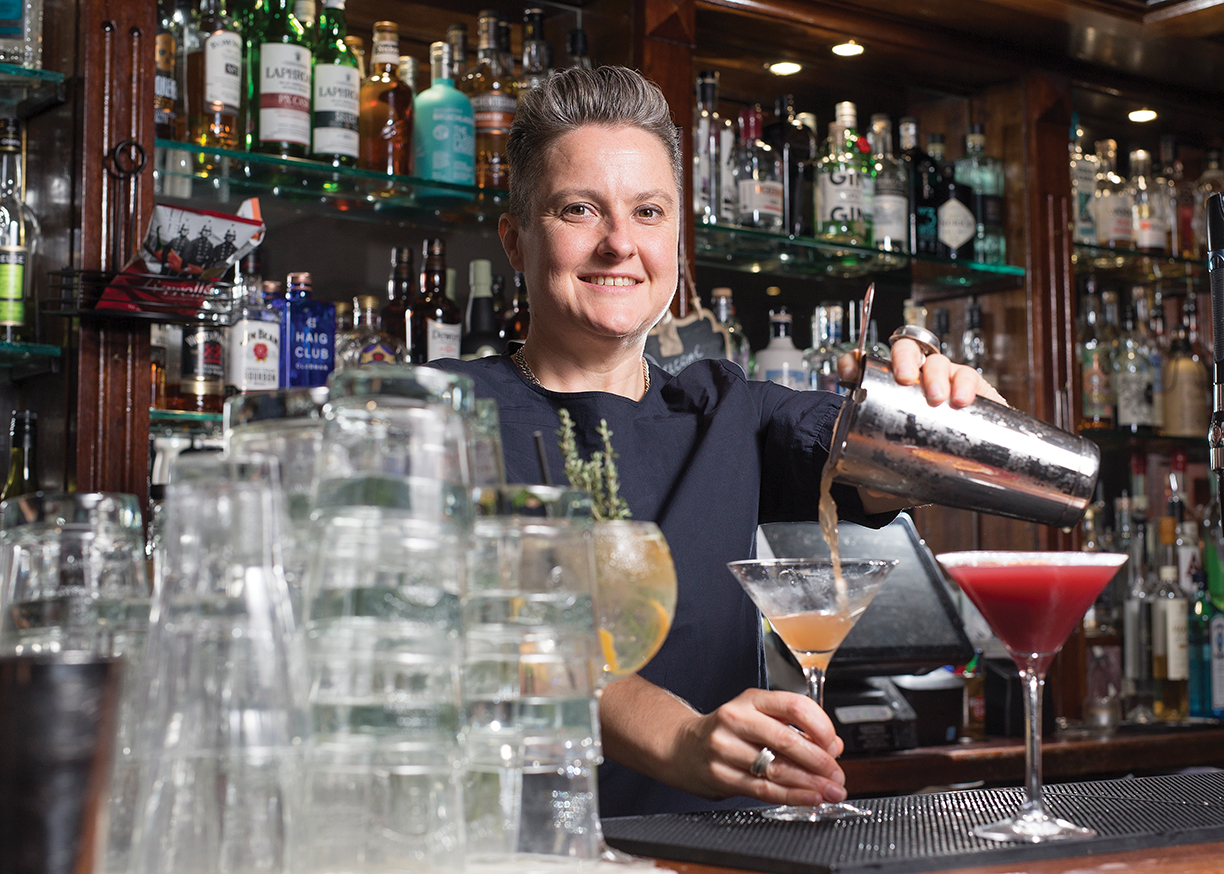
Willoughby herself enjoys drinking Three Spirit as one of her non-alcoholic options along with kombucha, which is something that Vidal says is a great addition to any non-alcoholic or low ABV cocktail. According to Vidal and Willoughby, choosing to become a mindful drinker doesn’t really have any setbacks, as it opens the door to a new lifestyle and way to enjoy nights out or time spent with good company. “People believe they have to give up their social life if they change their drinking, but what happens is your social life changes,” Willoughby says. “And guess what? Your social life changes anyway as you go through life.” On Club Soda’s website, the organization offers courses that help guide people down a mindful drinking journey that works for their lifestyle. “If somebody’s desire is to try and drink moderately,” says Willoughby. “Then that’s absolutely fine by us as well.” She goes on to say that there is a binary view of alcohol, which in actuality, there isn’t.”
Whether someone is choosing to phase alcohol out of their lives or is looking to start a new relationship with it, there are plenty of options that are just as delicious as their alcoholic counterparts. “I always say ‘tasty doesn’t have to be boozy,’” says Vidal. “For me, there’s something magical about having a low-alcoholic or non-alcoholic cocktail, and it’s not about the alcohol content, it’s about the moment, the celebration and appreciating the experience we’re having.”
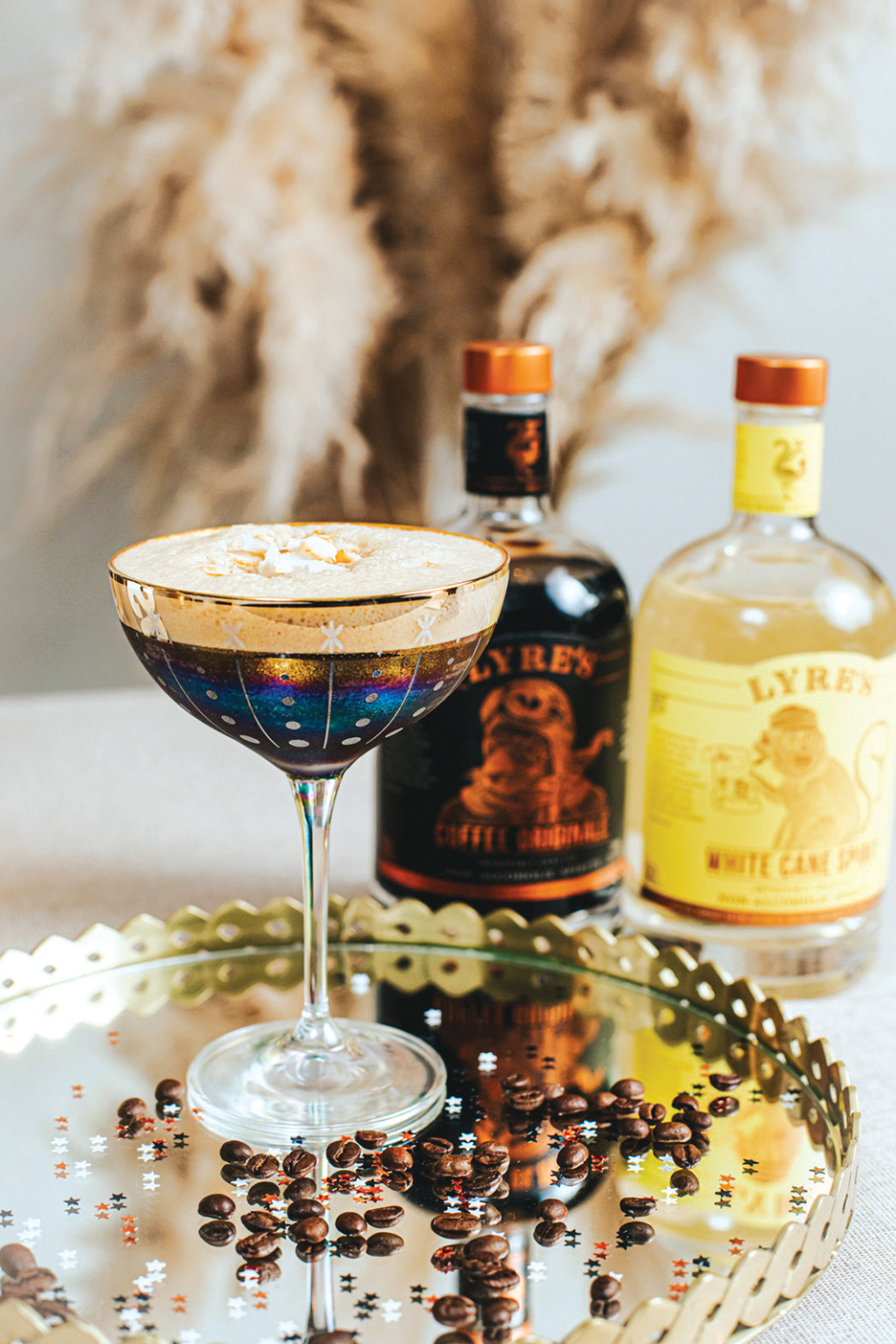
Café Soirée
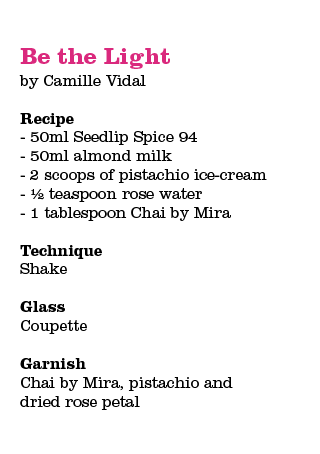
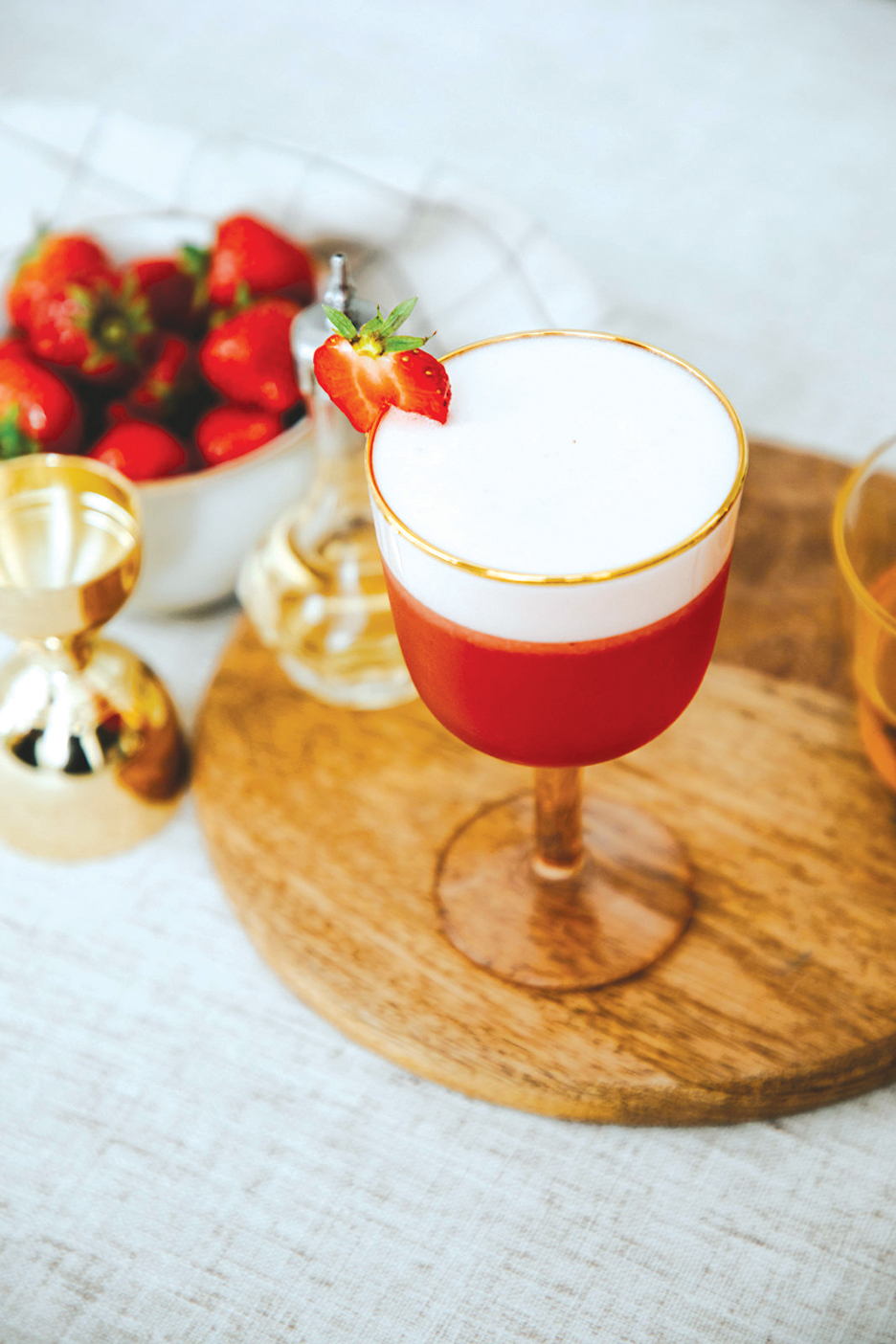
Strawberry Fields
Vegan restaurants, suddenly attracting trendy designers, world-class chefs and mainstream diners, are not what they used to be.
By Roger Grady
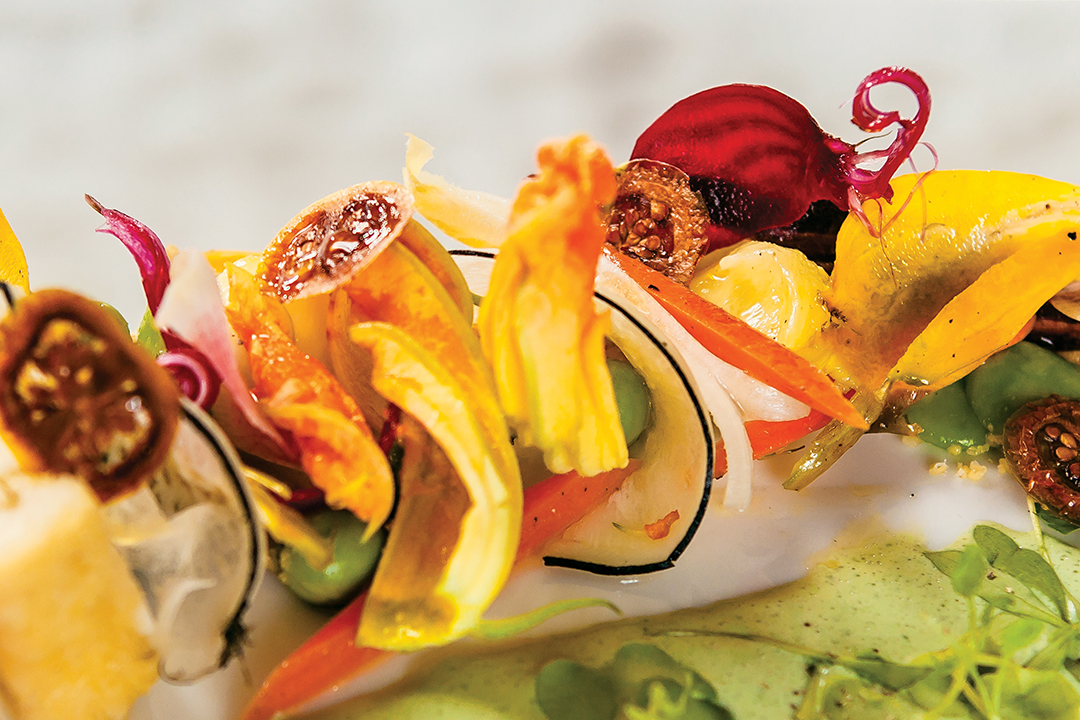
Macadamia cheese crumble with tarragon-spirulina sauce, squash blossom and black radish; Elizabeth’s Gone Raw; photo © Foster Wiley
The current wave of steakhouses, Korean barbecue restaurants and Brazilian churrascarias suggests Americans are unapologetically embracing their carnivorous cravings. Also flourishing, however, are vegan restaurants that shatter stereotypes of funky holes-in-the-wall accommodating struggling philosophers with tasteless sprouts. A new generation of vegan restaurants offers sophisticated, even elegant experiences with surprisingly little deprivation.
A vegan diet — the more politically correct term is “plant-based” cuisine — utilizes no animal products whatsoever, making it more restrictive than vegetarianism, and therefore stigmatized by those who assume such orthodoxy stifles creativity. But plant-based kitchens are suddenly attracting chefs that take their craft seriously, people trained in top culinary schools and Michelin-starred kitchens. Their customers are not exclusively herbivores, but mainstream diners simply seeking a change of pace, no different than going out for Thai or Peruvian food.
The Los Angeles diner is often typecast as a supermodel picking at her salad, so it is no surprise the city has its share of vegan establishments. But no restaurant in L.A. provides a better example of an imaginative chef elevating plant-based cuisine than Crossroads, where chef/owner Tal Ronnen turns out exquisitely plated dishes in a dining room with white linen-clad tables, trendy chandeliers and high-end finishes. “We wanted to create a dining experience that was comfortable and a little more refined than what most people think a vegan restaurant experience is all about,” says Ronnen.
“What we try to do at Crossroads is provide an experience that doesn’t feel like a sacrifice, but is actually a step up,” says Ronnen. The author of The Conscious Cook explains that the challenge of finding creative, vegan alternatives to traditional sauces like hollandaise or béarnaise is very exciting to him as a chef.
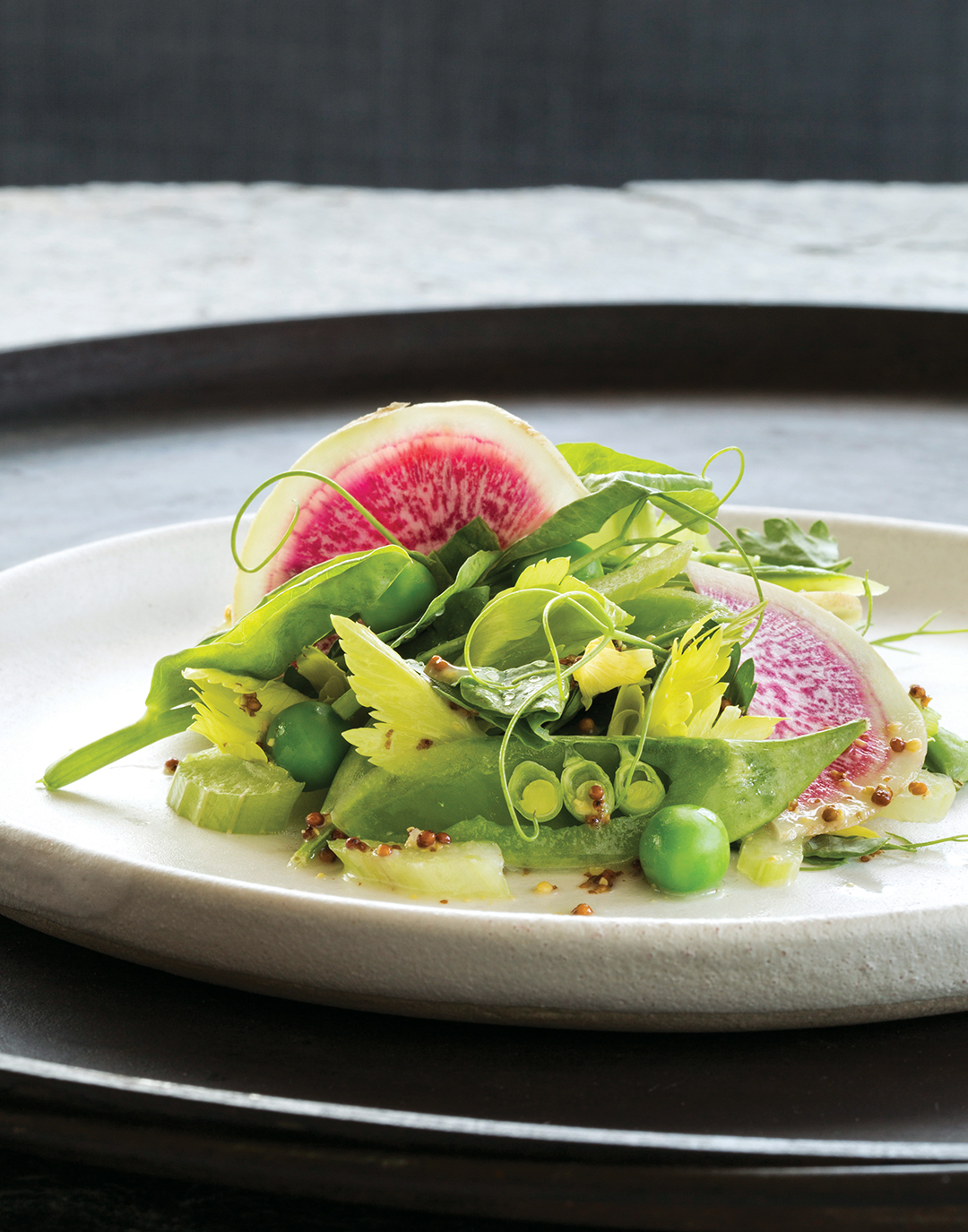
Spring chopped salad with whole-grain-mustard vinaigrette; Photo courtesy Crossroads
At Crossroads, the seasonally changing menu may include vichyssoise or tomato-watermelon gazpacho, pizza with truffle “cream” sauce, grilled vegetable lasagna, and even a cheese plate showcasing Kite Hill artisanal vegan cheeses. In the fall, a “seafood” tower is offered, with carrot “lox” standing in for smoked salmon with kelp caviar and almond milk “crème fraîche,” while tempura-battered lobster mushrooms suggest something far more indulgent.
Longtime Washington, D.C., caterer Elizabeth Petty turned to a raw vegan diet when she was recovering from breast cancer, but faced a pivotal dilemma regarding her career. “I lived and breathed food, so I knew I could take raw vegan cuisine to a level nobody had ever seen,” she recounts, and founded Elizabeth’s Gone Raw rather than abandoning her passion. The restaurant, occupying a sumptuously furnished 19th century Federalist-era townhouse not far from the White House, is the antithesis of the stereotypical countercultural vegan hole-in-the-wall.
Petty is passionate about the various benefits of maintaining a raw vegan diet, but retains a commitment to culinary sophistication and creativity, which executive chef Francisco Hernandez presents in exquisite seven-course meals every Friday evening. With artfully plated dishes like a silky red pepper soup with lavender-cabbage foam or a mushroom roulade with black truffle, salsa verde, yuzu and almond buttermilk cream, it is no wonder foodies of all stripes have discovered this highly personalized, heartfelt restaurant. Hardly a zealot — she occasionally cooks meat for her own family — Petty reports, “I’m not only happy to be alive but am so grateful people have embraced this cuisine and continue to express their
appreciation.”
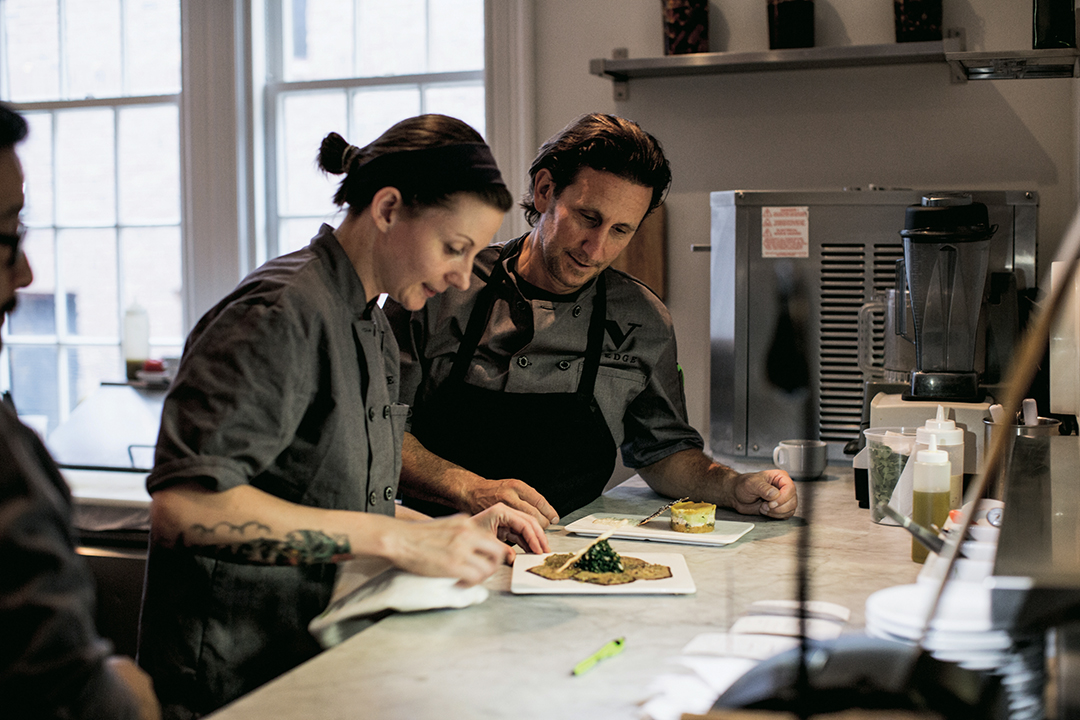
Rich Landau, executive chef/co-owner, and Valarie McCarro, kitchen manager; Photo courtesy Vedge.
In 1994, chef Richard Landau opened a humble food counter inside a natural food store, eventually marrying one of his customers, Kate Jacoby. Today the couple operates Vedge, ensconced in a historic brownstone in downtown Philadelphia, and both have earned James Beard Award nominations for their refined veggie-centric cooking. From a kitchen devoid of animal products comes an avocado stuffed with turmeric-tinted cauliflower or a playful riff on the city’s iconic Philly cheesesteak sandwich: house-made potato bread stuffed with maitake mushrooms in a “cheesy” sauce of roasted rutabaga. The all-natural wine list is nationally recognized, and pastry chef Jacoby creates a pretzel-crusted chocolate-peanut butter finale that is downright decadent.
Although Jacoby never proselytizes customers — most of them are foodies, but not full-time vegans — she states, “There’s such a strong argument for health and environmental impact in choosing a vegan lifestyle.” The couple’s second restaurant, V Street, offers a more casual vegan experience. “V Street is more fun, more daring and spicier, inspired by street foods from around the world,” reports Jacoby.
When he is not working as a private celebrity chef, keynote speaker or consultant, Matthew Kenney oversees restaurants in his native Maine, Miami, L.A., and New York City, with another opening in the Persian Gulf state of Bahrain next year. The Miami location of Plant Food + Wine, designed by renowned architect Rene Gonzalez, features a gorgeous palm-studded wooden deck surrounding a seductively illuminated reflecting pool. “Our cuisine is modern, clean and organic, and we create environments to fit this vision,” explains Kenney.
“Cooking plant-based has challenged me to look at ingredients in a new way,” explains Kenney. Meats may be off limits at Plant Food + Wine, but a mushroom pâté can provide the illusion of something much richer, while watermelon poke, coconut ceviche tacos and kimchi dumplings populate a globally inspired menu. A five-course tasting menu with optional wine pairings is offered, and desserts range from vegan tiramisu to strawberry-hibiscus cheesecake.
Culinary diversity for vegans is provided at San Francisco’s Gracias Madre, whose Mexican-themed menu offers gorditas with salsa verde, avocado and cashew crema, and vegan tamales. Beyond Sushi, a New York vegan mini-chain from classically trained, Israeli-born chef Guy Vaknin, dispenses eye-popping black rice sushi with curried cauliflower and almond pesto, or a spicy mango roll topped with toasted cayenne sauce.
“I always wanted to create beautiful, nutritious food and deliver fantastic culinary experiences,” reports Kenney, a sentiment that could be attributed to any passionate chef, not just an advocate of plant-based cuisine.
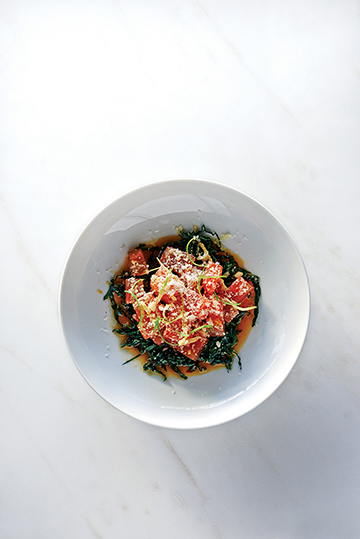
Wood Roasted Carroy by Vedge
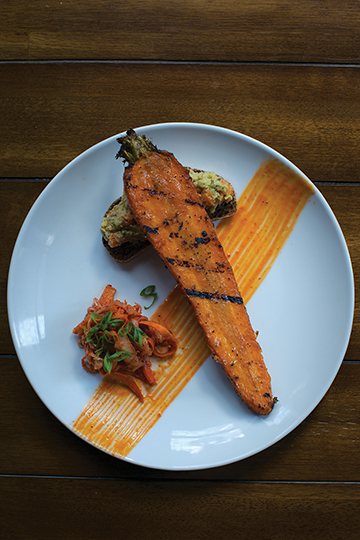
Watermelon Poke by Plant Food + Wine
Guiltless Indulgence
Beyond Sushi 229 E. 14th St., New York City, 646.861.2889 (and two other locations); www.beyondsushinyc.com
Crossroads 8284 Melrose Ave., Los Angeles, 323.782.9245; www.crossroadskitchen.com
Elizabeth’s Gone Raw 1341 L St. NW, Washington, D.C., 202.347.8349; www.elizabethsgoneraw.com
Gracias Madre 2211 Mission St., San Francisco, 415.683.1346; www.gracias-madre.com
Plant Food + Wine 1009 Abbot Kinney Blvd., Venice, California, 310.450.1009; 105 NE 24th St., Miami, 305.814.5365; www.matthewkenneycuisine.com
Vedge 1221 Locust St., Philadelphia, 215.320.7500; www.vedgerestaurant.com
V Street 126 S. 19th St., Philadelphia, 215.278.7943; www.vstreetfood.com






